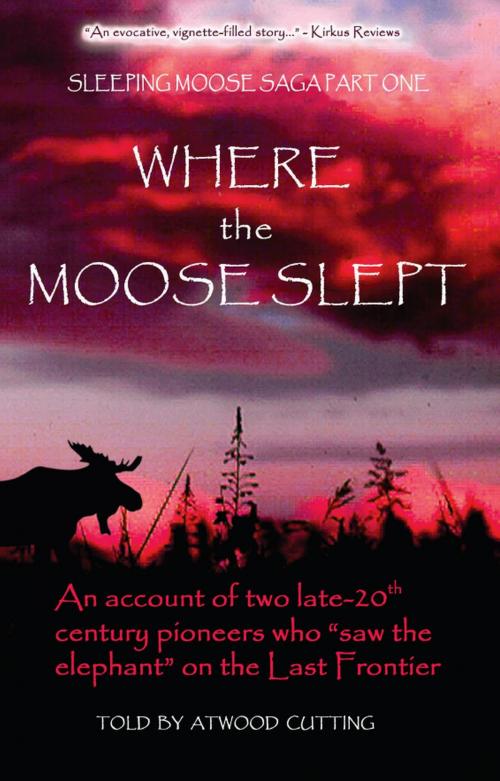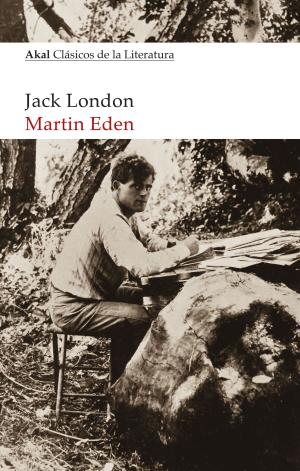Where the Moose Slept
An account of two late 20th century pioneers who "saw the elephant" on the Last Frontier
Kids, Fiction, Historical, Teen, Fiction - YA| Author: | Atwood Cutting | ISBN: | 9780997581942 |
| Publisher: | Echo Hill Arts Press | Publication: | October 20, 2017 |
| Imprint: | Language: | English |
| Author: | Atwood Cutting |
| ISBN: | 9780997581942 |
| Publisher: | Echo Hill Arts Press |
| Publication: | October 20, 2017 |
| Imprint: | |
| Language: | English |
The setting is deep in a field of wildflowers, far from any city. It is during the Alaska oil boom, and two anachronistic romantics have heeded the call of the wild. Kate has come from Hawaii, ‘to see a winter.’ Inspired by the cultural revolution of the sixties, she dreams of a Utopia. Tim, a soldier returning from Vietnam, simply wants to build a log home and live life the way he wishes. They elope.
Their epic wilderness experiment takes Emerson’s vision of Transcendentalism through self-reliance, and puts meat on it, while the outcome of this odyssey calls to mind the reports of “seeing the elephant” by many who traveled west by covered wagon in the mid-19th century.
This is Historical Fiction. Photographs and letters written from the pioneer wife to her mother detailing the adventurous newlyweds’ pre-technological lifestyle were treasured, and eventually handed down to Atwood Cutting by her grandmother. The nonfiction narrative is likely to evoke disbelief in young adults and fond memories in seniors, while nature lovers and DIY souls will lap up the innovative transportation and construction solutions described.
If the wilderness calls your name, and you dream of running toward its perfection but can’t clear your schedule, then you are the right reader for this trilogy about pioneering before there were cellphones.
ATWOOD CUTTING-author:
With idealistic pioneering Alaskans for parents, newborn Atwood Cutting was transported home from the hospital on a snow mobile. Upon opening the front door of their hand-hewn house, her mother was surprised to find the nursery looking like a scene from Gettysburg, all charred and steaming after her dad had dried it out with a blow torch. In they went, regardless. This little girl would have to get used to roughing it soon enough. Why not start at one week old?
Atwood loved those childhood years on their private mountain, and she was sorely distressed when her parents packed up their kit bags and moved the kids south. In researching and writing SLEEPING MOOSE SAGA she finally came to understand Tim and Kate’s reasoning, and the fateful decision to leave their dreams of Utopia behind.
Her teens were spent in the good old Midwest, where she did all the things red-blooded American youth do in those small mid-western towns, and then she was off to Italy, Ecuador, and serving aboard a cruise ship, touring the great, untapped world beyond.
In college Cutting majored in the arts, and then “rounded out” her education with a Master’s degree in “aesthetic expression.” She presently lives in Colorado where she and her “poet” husband are refurbishing a 1962 Shasta Astrodome trailer to call their own tiny home on wheels.
KATE CUTTING PETERS - contributor of letters, journals and photographs:
Kate Peters was dubbed a “free spirit” as a girl, as she blissfully rode her horse barebacked and barefooted through the endless fields and apricot orchards surrounding the family home. Then, at a much-too-tender age, she was ripped from her hilltop in California and plopped down to live in Honolulu, Hawaii. How rude! After graduating from college in the Islands, Kate lusted after spiritual adventure; so she headed north to Alaska “to experience a winter,” as she tells it. There she met Tim, a fellow adventurous soul, and the two set off to explore their life’s story together. The historical fiction work, SLEEPING MOOSE SAGA, by daughter Atwood Cutting, conveys her mother’s version of what “modern” pioneering on “America’s Last Frontier” was like.
After twelve years of coping with ultra-rustic conditions, Kate Peters finally acknowledged an overwhelming presence described by early American wagon train travelers as “the elephant.” The sight of such a “beast among us” dislodged her youthful idealism, and caused her to convince the family to pull up stakes and retreat south. After years of rumination, Kate has finally formed a new and more realistic philosophy: “Be kind, but protect yourself.”
Kate Peters has aged some since the 1970s, but she can still share a pretty good yarn about those days on a mountaintop in Alaska. Like a lot of older folks, she and Tim struggle to adapt to all the technological doo-hickies that continue to spring up in this 21st Century. If she ever runs out of pioneering tales, it’s a sure bet that she’ll come up with some humorous observations about those little microchips that have come to dominate our civilized world.
The setting is deep in a field of wildflowers, far from any city. It is during the Alaska oil boom, and two anachronistic romantics have heeded the call of the wild. Kate has come from Hawaii, ‘to see a winter.’ Inspired by the cultural revolution of the sixties, she dreams of a Utopia. Tim, a soldier returning from Vietnam, simply wants to build a log home and live life the way he wishes. They elope.
Their epic wilderness experiment takes Emerson’s vision of Transcendentalism through self-reliance, and puts meat on it, while the outcome of this odyssey calls to mind the reports of “seeing the elephant” by many who traveled west by covered wagon in the mid-19th century.
This is Historical Fiction. Photographs and letters written from the pioneer wife to her mother detailing the adventurous newlyweds’ pre-technological lifestyle were treasured, and eventually handed down to Atwood Cutting by her grandmother. The nonfiction narrative is likely to evoke disbelief in young adults and fond memories in seniors, while nature lovers and DIY souls will lap up the innovative transportation and construction solutions described.
If the wilderness calls your name, and you dream of running toward its perfection but can’t clear your schedule, then you are the right reader for this trilogy about pioneering before there were cellphones.
ATWOOD CUTTING-author:
With idealistic pioneering Alaskans for parents, newborn Atwood Cutting was transported home from the hospital on a snow mobile. Upon opening the front door of their hand-hewn house, her mother was surprised to find the nursery looking like a scene from Gettysburg, all charred and steaming after her dad had dried it out with a blow torch. In they went, regardless. This little girl would have to get used to roughing it soon enough. Why not start at one week old?
Atwood loved those childhood years on their private mountain, and she was sorely distressed when her parents packed up their kit bags and moved the kids south. In researching and writing SLEEPING MOOSE SAGA she finally came to understand Tim and Kate’s reasoning, and the fateful decision to leave their dreams of Utopia behind.
Her teens were spent in the good old Midwest, where she did all the things red-blooded American youth do in those small mid-western towns, and then she was off to Italy, Ecuador, and serving aboard a cruise ship, touring the great, untapped world beyond.
In college Cutting majored in the arts, and then “rounded out” her education with a Master’s degree in “aesthetic expression.” She presently lives in Colorado where she and her “poet” husband are refurbishing a 1962 Shasta Astrodome trailer to call their own tiny home on wheels.
KATE CUTTING PETERS - contributor of letters, journals and photographs:
Kate Peters was dubbed a “free spirit” as a girl, as she blissfully rode her horse barebacked and barefooted through the endless fields and apricot orchards surrounding the family home. Then, at a much-too-tender age, she was ripped from her hilltop in California and plopped down to live in Honolulu, Hawaii. How rude! After graduating from college in the Islands, Kate lusted after spiritual adventure; so she headed north to Alaska “to experience a winter,” as she tells it. There she met Tim, a fellow adventurous soul, and the two set off to explore their life’s story together. The historical fiction work, SLEEPING MOOSE SAGA, by daughter Atwood Cutting, conveys her mother’s version of what “modern” pioneering on “America’s Last Frontier” was like.
After twelve years of coping with ultra-rustic conditions, Kate Peters finally acknowledged an overwhelming presence described by early American wagon train travelers as “the elephant.” The sight of such a “beast among us” dislodged her youthful idealism, and caused her to convince the family to pull up stakes and retreat south. After years of rumination, Kate has finally formed a new and more realistic philosophy: “Be kind, but protect yourself.”
Kate Peters has aged some since the 1970s, but she can still share a pretty good yarn about those days on a mountaintop in Alaska. Like a lot of older folks, she and Tim struggle to adapt to all the technological doo-hickies that continue to spring up in this 21st Century. If she ever runs out of pioneering tales, it’s a sure bet that she’ll come up with some humorous observations about those little microchips that have come to dominate our civilized world.















